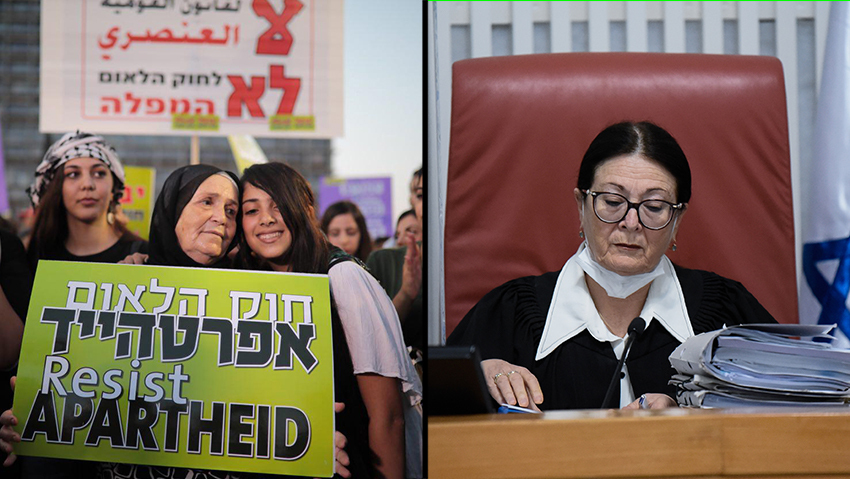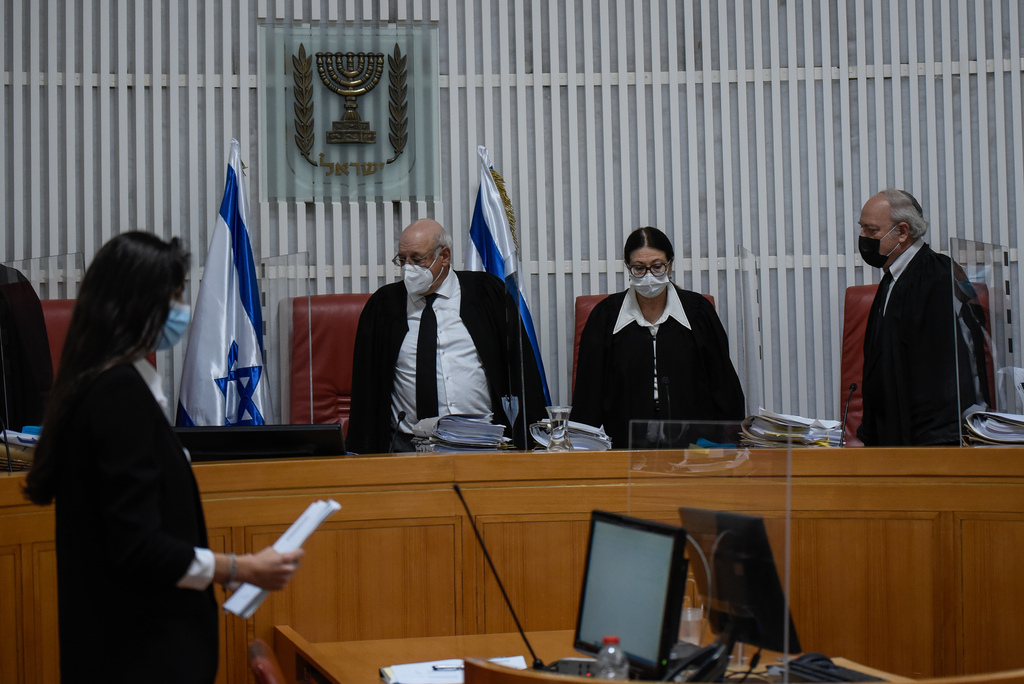The High Court of Justice rejected on Thursday a petition against the Nation-State Law which anchors Israel's status as the national home of the Jewish people.
The 11-justice panel ruled by a majority of ten to one that there were no grounds to throw out the 2018 legislation since it does not contradict the democratic foundations of the state.
2 View gallery


Demonstrators protest the Nation-State Law; Chief Justice Esther Hayut
(Photo: Shalev Shalom, Tal Shahar)
The ruling came in response to 15 different petitions filed to the High Court which deemed the quasi-constitutional law inappropriate to make up a part of the state's future constitution due to the content of its provisions and demanded it be struck down.
Many of the law's critics protest it leaving out any reference to equality and minority rights.
The court argued that the Nation-State Law, or Basic Law: The Nation-State as it is formally known, is "another component of Israel's emerging constitution that is intended to anchor the components of the identity of the state as a Jewish state, without diminishing from the components of the state's democratic identity that are anchored in the other basic laws and constitutional principles that institute the legal system in Israel."
2 View gallery


High Court of Justice convening to discuss possible axing of Nation-State Law, December 22, 2020
(Photo: Shalev Shalom)
A majority of justices held that as long as Israel does not have a formal constitution, the Knesset, in its capacity as the constituent authority, was subject to only one limitation — negating Israel's identity as a Jewish and democratic state. Denying one of these two pillars, the justices opined, would lead to the collapse of the entire constitutional structure.
In the sole dissent, Justice George Kara argued some clauses of the law “negate the core of the democratic identity of a state and shake the thresholds of the constitutional structure,” urging they be struck down.

